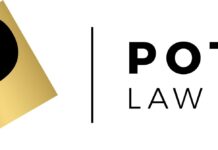Florida State Hispanic Chamber of
Commerce Files Brief Opposing the Proposed Solar Language to Amend Florida’s
Constitution
LAKE
WORTH, Fla., June 10, 2015 /PRNewswire-HISPANIC PR WIRE/ — The Florida State
Hispanic Chamber of Commerce today filed its initial brief opposing the
language of the Solar Ballot initiative to amend the Florida Constitution
proposed by Floridians for Solar Choice. Florida’s Attorney General Pam
Bondi requested in May that the Florida Supreme Court issue an advisory opinion
concerning the validity of the proposed language.
The
Florida State Hispanic Chamber of Commerce, which represents 80,000 Hispanic
owned businesses in Florida, is greatly concerned that the current ballot
language does not inform the voter of the price increases to their electrical
bill that would occur if the Solar Amendment is approved. As the brief
filed today states, "A citizen may want to vote "yes" to
increase solar choice, but the vote may be "no" if the ballot fully
informed the voters of the potential adverse consequence on overall electric
rates or the other issues that may arise from granting exempt status to
the Solar Providers." "Voters have a right
to know exactly what they are voting on. Excluding critical information
can alter the outcome of the vote," stated Julio Fuentes, President and
CEO of the Florida State Hispanic Chamber of Commerce.
The
Chamber is also concerned with potential public safety and operational issues
because the proposed ballot language seeks to exempt solar providers from all
current regulatory provisions, resulting in a lack of oversight and protection
to the consumer. For example, in the event of a hurricane, should the
proposed ballot measure win, the solar provider is exempt from the current
requirements concerning safety measures or restoration of service.
"Again, voters should clearly know from the ballot language the
consequences resulting from deregulating the solar industry; it’s a matter of
common sense and consumer protection," reiterated Fuentes.
In
the brief the Chamber highlights its support for alternative energy
initiatives, and concludes that, although it may be well-intentioned, the
proposed ballot language misleads the voter concerning current Florida law and
the adverse consequences for the consumer should the Solar Ballot Amendment
prevail. "It is my hope that Florida’s Supreme Court thoroughly
reviews the concerns raised in our initial brief and issues an opinion that
protects the voter and all Florida consumers," concluded Mr. Fuentes.
CONTACT:
Luana Gonzcalves
954-415-8982
[email protected]






